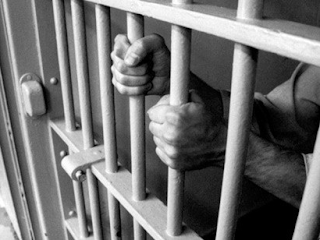
Source:
Global Research
Sherwood Ross
The latest report by the American Civil Liberties
Union(ACLU) is not likely to inspire politicians to shut down our
private prisons when prison operators are pouring millions of dollars
into their campaign coffers.
Jobbing out the incarceration business, said lawyer David
Shapiro of the ACLU Prison Project “has been a bonanza for the private
prison industry, which rakes in billions of dollars a year and dishes
out multi-million dollar compensation packages to its top executives.”
And those top executives, in turn, between 1998 and 2000,
for example, wrote over $1.2-million in checks to political candidates
and political parties. And why not, when their firms have received such
huge public subsidies as $68 billion in tax-free bonds to help them
build?
Since the 1980s Reagan era shift to privatization, more
than 150 private facilities—detention centers, jails, and prisons—-with a
capacity of about 120,000 have been opened, and 7% of all U.S. adults
inmates have been dumped in them.
“Abuse of prisoners, escapes, prison violence including
prisoner-on-prisoner, prisoner-on-guard and vice versa, restricted and
malfeasant health care, providing rotten food, and other prison
management problems are characteristic of the private prison industry,”
writes sociologist Margaret Rosenthal in “The Long Term View,” a journal
published by the Massachusetts School of Law at Andover. Rosenthal is
Professor Emerita, School of Social Work, Salem State College, Mass.
“One study found 49% more prisoner-on-staff and 65% higher
prisoner-on-prisoner assaults in private medium and minimum security
prisons than in public ones,” Rosenthal writes. Example: at the
Northeast Ohio Correction Center in Youngstown, operated by industry
leader Corrections Corporation of America(CCA), in a period of just 14
months there were 13 stabbings, two murders and six escapes that ended
in violence. Rosenthal said other sociologists have documented “many
other examples of brutality and incompetence perpetrated in CCA-run
facilities.”
Since private prisons prosper in proportion to the number
of prisoners they house, “the suspicion remains that they may hold on to
prisoners, particularly ones who are not troublesome as a means to earn
extra money,” Rosenthal writes. Even when operators do not directly
control discharge decisions, she notes, “by controlling record-keeping
about prisoners’ behavior they can have a determining role in
establishing when a prisoner is to be released or paroled.”




